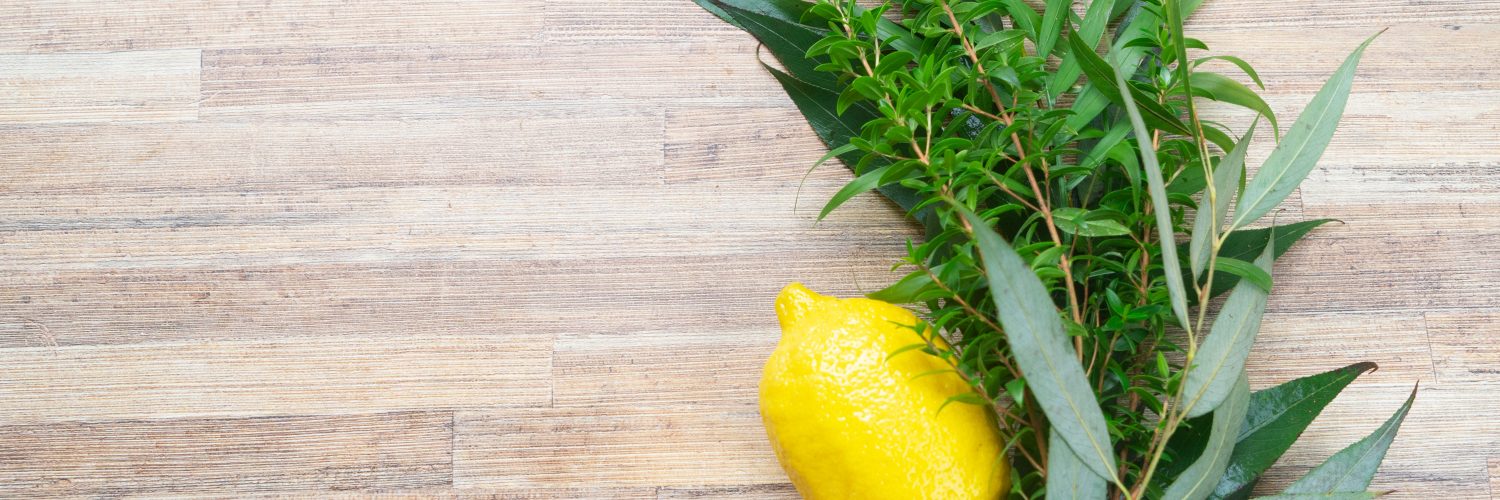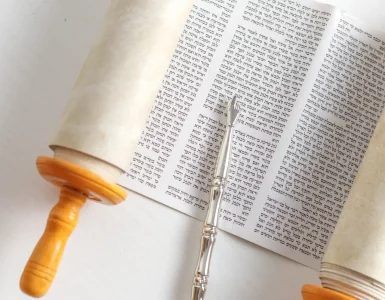Halachos and Minhagim of Tishrei:
Guidelines for Hospital Patients, Visitors, and Staff – Part III[1]
The First Night of Sukkos
On Leil Yom Tov, one should not make Kiddush or eat in the Sukka until definite halachic nightfall. One who is exempt from the Mitzva of Sukka may make Kiddush early.
One must eat at least a Kezayis of bread in the Sukka and recite the Bracha “Leisheiv baSukka” (aside from Hamotzi) before Chatzos. If one hasn’t eaten by Chatzos, he should eat after Chatzos. In that case, however, one may only say Leisheiv if one plans to eat at least a Kebeitza of bread.
Those Exempt From Sukka
The Mitzva of Yeshivas Sukka requires planning by patients and their families. Any change in the patient’s status can affect the Halacha. We will summarize the relevant Halachos here:
The Shulchan Aruch rules (based on the Mishna in Maseches Sukka 2:7) that a patient and his caregivers are exempt from the Mitzva of Sukka.
Two reasons are offered to explain this Halacha:
1: “haOsek b’Mitzva Patur Min haMitzva.” (Anyone engaged in a Mitzva is exempt from other Mitzvos.)
2. “Mitzta’er Patur Min haSukka.” (One who suffers discomfort from sitting in the Sukka is exempt.) In our case, due to the caregiver’s need to tend to his patient, he is considered Mitzta’er when he leaves the patient’s bedside to sit in the Sukka.
The Rema (O.C. 38:8) rules that one who is occupied with a Mitzva but can fulfill another Mitzva without inconvenience, is obligated in both. He is only exempt if turning to the second Mitzva would cause Tircha – inconvenience or bother. The exemption of “Osek b’Mitzva” also includes necessary rest time (Biur Halacha ibid.).
Therefore, one attending to a patient’s needs while the patient requires his aid is exempt from the Mitzva of Sukka. If the patient does not require assistance (for example, another person is available to attend to him, or if the patient is asleep) and the caregiver wishes to eat, he must eat in the Sukka.
Likewise, hospital staff are engaged in a Mitzva during their shifts. Therefore, they are exempt from Sukka if they wish to eat. However, during their breaks, they must eat in a Sukka if it is not inconvenient and searching for or walking to and from the Sukka will not take too much time from their break to allow adequate rest or refreshment.
Sometimes, a caregiver may not be actively assisting or treating a patient, but his mind and thoughts are occupied with the patient’s needs. If sitting in the Sukka would make this difficult, he is deemed a “Mitzta’er” and is exempt from Sukka (Shevus Yaakov 3:51).
One who is exempt, whether due to Osek b’Mitzva or Mitzta’er, but wishes to be stringent, should not recite the Bracha “Leisheiv baSukka” since he cannot say the words “v’Tzivanu Leisheiv baSukka”. (O.C. 475, Sha’ar haTziyun 39, and O.C. 639, Mishna Berura 34).
The Rema holds that even a Mitzta’er must eat a Kezayis in the Sukka on the first night of Yom Tov. The Mishna Berura rules that he should not recite a Bracha. Therefore, an Ashkenazi who is exempt from Sukka due to Mitzta’er but not due to Osek b’Mitzva (such as when another caregiver is available but his mind is occupied with the patient’s needs) must eat a Kezayis of bread in the Sukka on the first night, and should ask another person to be Motzi him with the Bracha of Leisheiv.
In summary, each person should evaluate his circumstances to determine whether he is obligated in the Mitzva of Sukka at that time.
An Onen (one whose immediate relative is awaiting burial) is exempt from Sukka.
A patient in critical condition, or one for whom staying in the Sukka is uncomfortable, is exempt. However, an Ashkenazi patient, condition permitting and with medical approval, should eat a Kezayis of bread in the Sukka on the first night, and ask another person to be Motzi him with the Bracha of Leisheiv.
A patient who feels that sitting in the sukkah will cause his illness or pain to worsen, or who has been informed of this risk by medical personnel, is not permitted to be stringent and sit in the Sukka. If he does so, he may not recite the Bracha of Leisheiv.
A patient with a urinary catheter or ostomy can enter the Sukka and recite Brachos, but he should ensure the bag is covered.
Caregivers
A caregiver for a patient in critical condition is exempt from Sukka even when the patient doesn’t actively require his aid. However, a caregiver for a non-critical patient is exempt from Sukka when the patient needs his assistance but obligated at all other times.
A caregiver for a patient who does not require active assistance, but whose mind is occupied with the patient’s needs such that leaving the bedside to the Sukka would cause distress, is exempt. Those of Ashkenazi descent, however, must eat a Kezayis of bread in the Sukkah on the first night, and should ask another person to be Motzi them with the Bracha of Leisheiv.
Anyone attending to a patient’s needs, such as picking up supplies or medications, waiting in line on his behalf, etc., is exempt from Sukka, even though he is not physically at the patient’s bedside.
Arba Minim
A patient with a urinary catheter or ostomy can take the Arba Minim and recite the Brachos, but he should ensure the bag is covered.
A patient whose hand is covered with a bandage or dressing may take the Arba Minim in the regular manner if the bandage does not cover the majority of the hand and removing it would be difficult. If his entire hand is covered by a bandage or a cast, the Arba Minim should be taken without a Bracha if it could be removed. If removing it is impossible, the patient can take the Arba Minim and recite the Bracha. If the fingertips are exposed, he can take the Arba Minim with his fingertips and recite the Bracha.
Lechatchila, one should take the Arba Minim and say the Brachos while standing. If standing is difficult, he may sit. A patient unable to sit may remain lying down.
Mashiv haRuach
We begin saying Mashiv haRuach in Mussaf of Simchas Torah, but only after an announcement by the Gabbai, or after the Tzibur has said “Tefilas Geshem.” Therefore, a patient davening alone in his room should not daven Musaf until he knows this has occurred (in his regular shul).
[1] [Editor’s note: These guidelines were published in Hebrew by Shaare Zedek Medical Center for Tishrei 5785. Prior installments of this translation were distributed for Parshas Ki Savo 5785 and Vayeilech 5786.]












Add comment